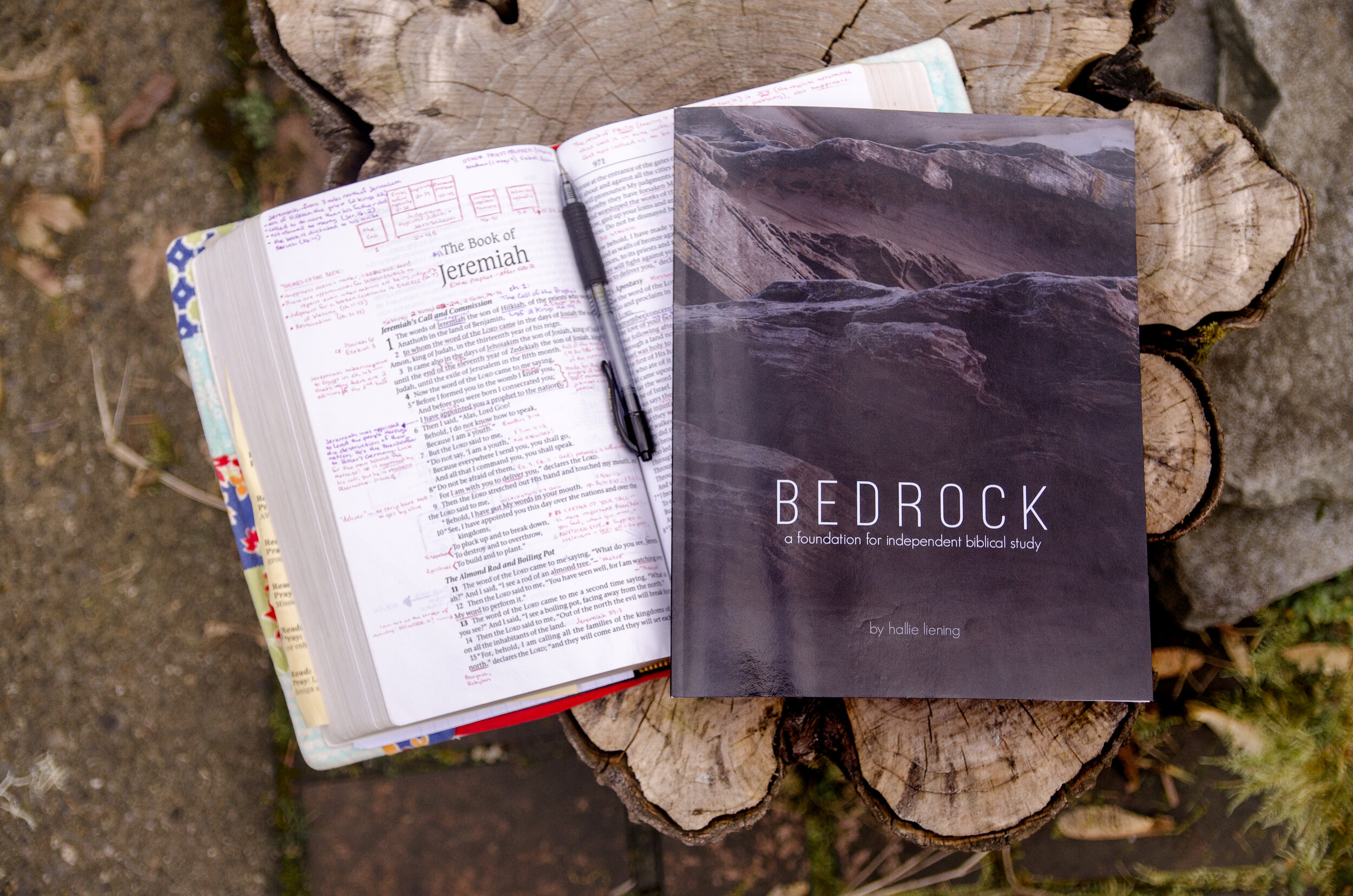how to study the Bible: ask good questions
/In the history of this blog, three of the top five most-read posts have been related to the topic of knowing and studying God’s Word. I love nothing more than hearing someone say, “I’d love to know how to study the Bible for myself” - or, “I’ve been going to church and Bible studies for years but I’m just so hungry for MORE.”
The study of the Bible isn’t just for pastors and elders. God’s Word is not only accessible to those who spend a decade in seminary learning ancient languages. I’m thankful for the people in my life who showed me that I, too, could learn how to study it for myself - because I was (and still am) hungry.
If you are hungry, too, this series is for you.
(See Step One HERE and Step Two HERE.)
How to study the Bible
Step Three: Ask good questions.
Now that you’re reading through the Bible with both its expansive story arc and its library of literary genres in mind, you’re ready to do the real meat of study. The goal of this step is to find the key principles of the Biblical text - that is, the timeless and unchanging truths about the natures of God and of humanity, which can be universally applied to believers in all times and places - rather than merely skimming the obvious commands and promises off the top and calling it good.
There are three broad questions that I recommend asking, and all three can be useful in any passage of Scripture. Depending on what book or chapter you’re studying, you may get a peppering of answers to these questions in every verse, or just one or two answers across a large section. It’s very important that as you answer each of them, particularly the first two, you include the specific verse reference(s) that informed your answer. This will hold you accountable to the text so that you are not merely inferring personal experience onto the text; you’re seeing truths that are actually there.
Question one: What does the passage teach me about who God is?
Remember, the Bible is the story of who God is. It paints a picture across 1,189 chapters of a stunning, multifaceted, incomprehensible Character - and barely scratches the surface of Him at the same time. This question keeps us centered on the purpose of the Word and makes it about Him, not us. It helps us to be observant of the text and take a learning posture, rather than coming at it thinking we already know who He is and what He is accomplishing in a particular passage.
Don’t be bothered if your answers to this question seem absurdly obvious. That’s part of the practice of observation. In a study of Psalm 123, one of my answers might be, “God is enthroned in the heavens” - because the first verse literally states, “To You I lift up my eyes, O You who are enthroned in the heavens!” On the other hand, some of your answers may never be explicitly stated, but make up the undercurrent of the passage. (In those cases, you should still be able to point to the verse(s) that brought you to your conclusions, however.)
Question two: What does the passage teach me about who I am, in light of who God is?
Only after we have focused on who God is are we prepared to move toward any application to ourselves. Just like Question #1, sometimes your answers here will seem ridiculously obvious and other times they may be more implicit. Both should be accompanied by the exact references of the verses that led you to your answers.
Of course, the passage is never going to address you directly. It’s never going to teach you about you, the individual postmodern Christian. It may, however, address you as part of the universal Church, or as a Christian man or woman, or as a leader in a church. That’s the meaning of the question here. I don’t ask the Bible, “What does this passage teach me about Hallie?” - I ask, “What does this passage teach me about humanity in general, or about the universal Church, or about my gender’s role, or some other larger constant group that I have in common with the original recipients of this text?”
Question Three: What does the passage teach me about how I should live, in light of who God is and who I am?
Put more briefly, “How should I respond to the truths I listed under Questions #1 and #2?” This question gives us the opportunity to begin applying the truths of the text to our own lives, while being careful not to insert ourselves into stories that aren’t about us.
Answers to this question will take very different directions for different people, even regarding the very same passage of Scripture. Unlike the previous two, this is a critical thinking question, not an observation question - which means that it can carry the highest risk of inappropriate interpretation, but at the same time can create a rich opportunity for the Holy Spirit to work in your study. To ensure that you are treading that line carefully, there are two measures you can test your answers against:
Test your answers against the rest of Scripture and the character of God as revealed in Scripture. If anything you’ve written is clearly contradicted by another passage of the Bible or by the truth of who God is, it is false and should be discarded. Scripture will not contradict Scripture. (Here, it is key to remember the importance of genre. Direct instruction on a topic should always trump a narrative example on that topic - so if you are working in the genre of narrative, take care that your responses line up with the Bible’s clear instruction elsewhere.)
Only if your studies have clearly passed Test #1, test them also against human history and experience. Human experience is fallible, so this shouldn’t be your primary barometer, but it is important to ensure that the truths you discover are universally applicable to believers in all times and places, not restricted by any cultural or contextual limits that are unique to you.
Ready to go deeper?
These three questions can transform your reading of Scripture from a dull, passive, surface-level experience into a rich and deep practice of truth-searching. They offer enough guidance to show you what to look for, but are not so constricting that the Spirit can’t speak.
For an easy way to begin this work, I’ve created a printable study worksheet that contains space for you to journal your responses to these very same questions. If you’d like to download your own, click here.
Or, if this series has left you hungry for MORE, I’d love to introduce you to Bedrock.
Bedrock: A Foundation for Independent Biblical Study is a bit like Bible school for those who have never been to Bible school. I created it with the intent of helping you, no matter who you are or how much background you have with Scripture, independently find and understand the timeless truths offered in God’s Word that point us back to who He is. It’s part textbook, part workbook; it’s dense with practical instruction but also colorful and filled with interactive activity portions to keep you engaged. It will build beautifully on what you’ve learned in this series so far about the story of the Bible, the genres of literature, and the most helpful questions to ask as you pursue your study.
You can learn more about Bedrock here, or purchase on Amazon at the link below!








